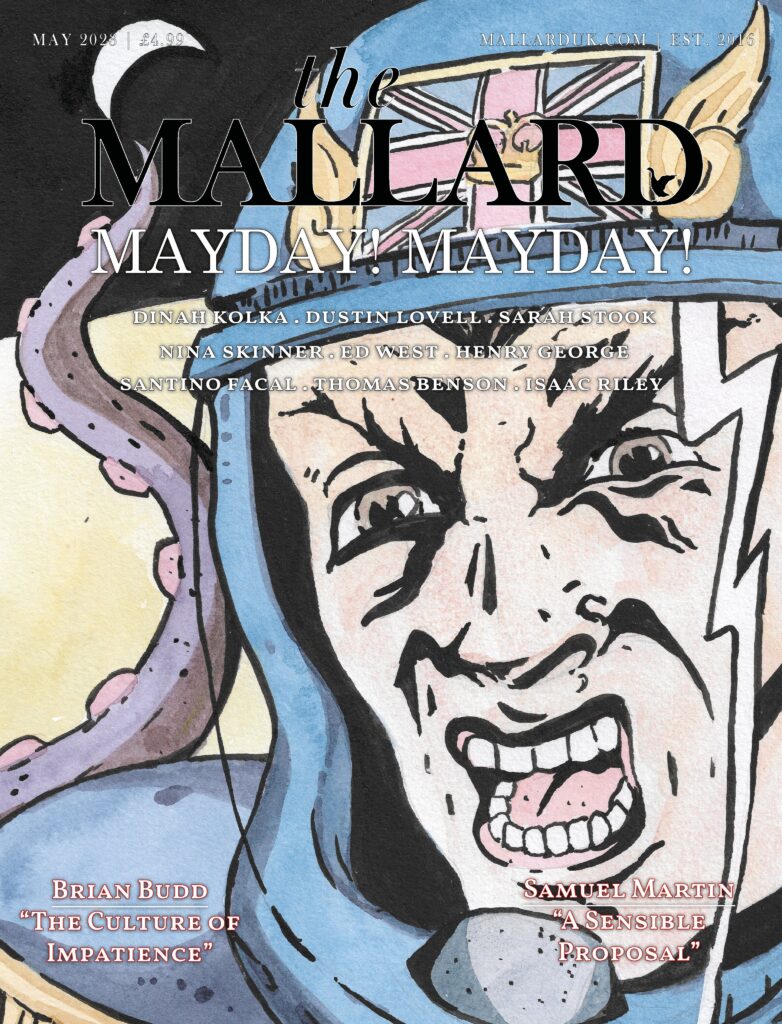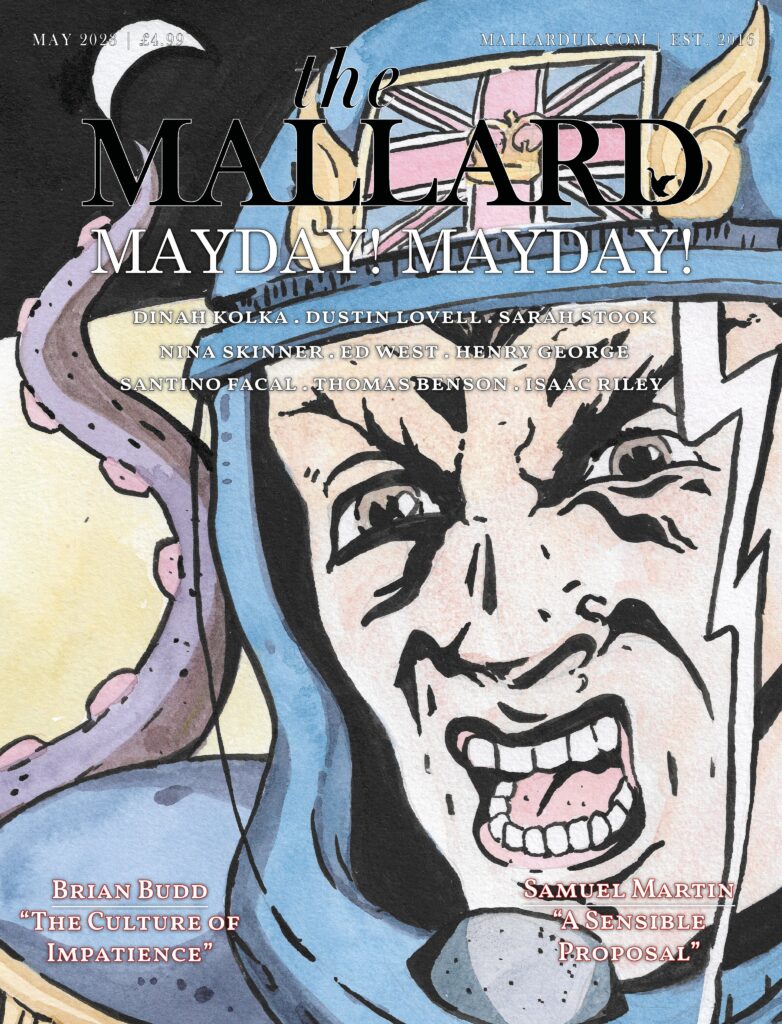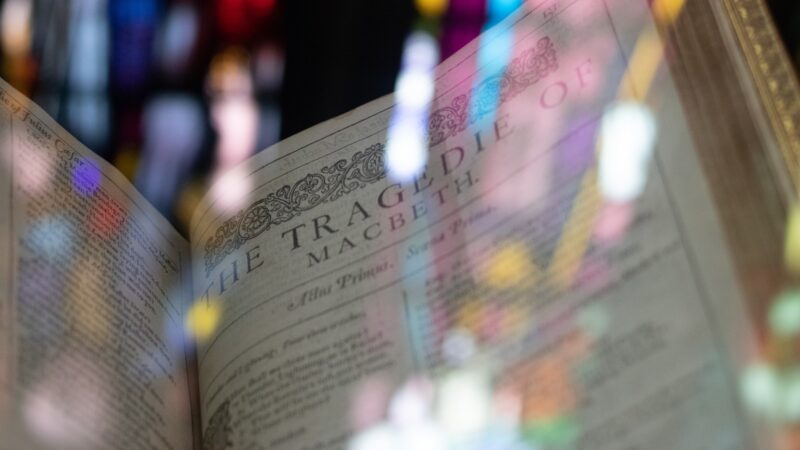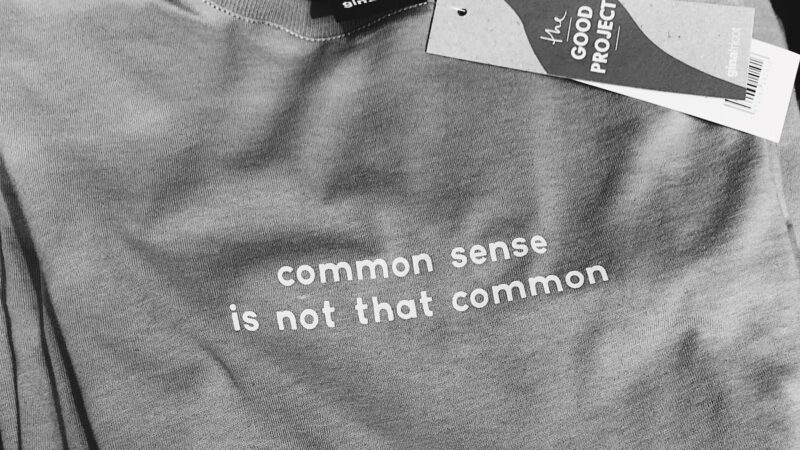latest
Birth of the Cosmoproletariat (Magazine Excerpt)
When you hear talk of globalisation, the winners and losers have become fairly set categories: the “winners” are the hyper-mobile, global class that are capable of picking up and putting down almost anywhere, whether that is London or LA, Tokyo or Berlin, Moscow or – well, maybe not Moscow, at least not at the moment.
These winners are the beneficiaries of the most dynamic economy that has ever existed in history before, in such a way that – even if we cannot put a hard date on it – I think it is pretty clear that the modern global economy defines the contemporary era of mankind more than anything else. We are living in the “global age” and there will inevitably be those for whom that age is good.
And then there are those for whom that age is bad. These are the majority of people whose lives are usually spent in one place, from school to work and, if they’re lucky, a few years of retirement. They might be more mobile than their ancestors, for whom life was inevitably spent in the same village, whilst they travel around their county or district but, broadly speaking, never stray too far.
These are the losers, we are told. They have suffered the effects of globalisation – declining industry, evaporating investment, creaking and groaning infrastructure – but are powerless to do anything about it, as they get caught in a cycle in which power follows money and money flows away.
So why not go where the money is? Why not travel abroad, where the work is? Part of the reason is that the last thing the “losers” have left is each other. The day before the In/Out Brexit Referendum, news vox-pops of people on the street saying they would vote to Leave, when asked why, gestured and said “look around. What do I have left to lose?” The backdrop of shuttered shops and boarded windows was the answer, and it wasn’t a very compelling one.
But the answer off-screen was one that the Remain camp had tried to buy into – they had their families, their households, their communities. When David Cameron claimed Brexit would “put a bomb” under the British economy, and George Osborne’s treasury pumped out statistics on the damage it would do to the average household, they were trying to speak to the rational brain that fears material loss. It made sense – it was the same brain they had been speaking to for six years with messages of necessary spending cuts, tax breaks, and increasing job opportunities.
Except this did not work because that audience was not there. The average person did not have the material loss to be threatened, and at a time when fatherlessness was rising, families were breaking down, and over three million households were single-parent; even that small amount to lose was felt to be lost already.
The one thing that the losers had left was their community – and by and large, these were communities that had been decimated by the austerity years. So, they stayed, because their families might be thin and disappearing but their community remained fairly strong.
When Karl Marx decided that the slow transfer of people from the countryside to the cities meant that the “proletariat” would emerge, he was attempting a scientific analysis of what was already happening. As people moved from field to factory, leaving behind their old places in the world and attempting to take up new ones, they forged bonds of solidarity to replace the ones they lost. Human beings are deeply sociable, both from an inherent reality, and an existential need; we can only come into this world as a result of others, but we need to be seen and recognised while we’re here.
So, Britain especially saw the rise of industrial communities – and not just the political conscious-raising efforts of Trade Unions, for politics is tiresome and boring, really. There were also football clubs, local churches, free schools, civic action groups, and so on – in Bristol, there were 400 alone. I’m sure Marx’s miserable mind was able to only imagine the political, but in truth the personal is so much more interesting and enriching than the political. Don’t be fooled that they are the same thing.

This is an excerpt from “Nuclear”.
To continue reading, visit The Mallard’s Shopify.
The Reset Clause (same time next 25 years)
How did we get here, and where do we go? A lot of modern political questions can be summarised in those two simple questions. Our cultural and political zeitgeist has possibly become the equivalent of going out for a quick pint and realising sixteen hours later we have woken up on a flight to Mexico.
This literal cultural hangover event merely asks up to beg the question of where we go from here, now that everything has happened prior to our sleep walking and into the current awakening.
Legally, we might be more at home in Terry Gilliam’s ‘Brazil’, or One Flew over the Cuckoo’s Nest, in being trapped within a world that both defies logic or order. A world ran by malicious people, albeit far too stupid to be truly Orwellian Big Brother figures.
As noted by Nicolás Gómez Dávila’s book Sucesivos Escolios a un Texto Implícito:
“Dying societies accumulate laws like dying men accumulate remedies.”
If such things are true, then how do we stop the accumulation? Are societies, as they get further complex and interconnected into themselves and the outside world, doomed to merely breakdown under their own weight? Do we end up investing more energy into systems with greater diminishing returns, until the project itself collapses (Joseph Tainter makes this argument in his book ‘The Collapse of Complex Societies’).
Alternatively, is collapse merely something that occurs when a nation or civilisation loses the fire it once had, and the cracks begin to show? Do we physically lose the will to continue with the same drive and passion that our predecessors had, or do we merely just burn out like Wang Huning often pondered?
Where are the get out of jail free cards, the mechanisms to stop the damage, how do we stop this strange death from approaching?
We often see images of political leaders placing their hands on religious texts, and then stating that they will protect the law of the land and uphold the constitution or whatever. This is nearly always a lie when you have people who neither understand nor respect the original foundations which the nation sprung from.
It was Edmund Burke that said society is a contract between the dead, the living and those yet to be born, and civilisation is an intergenerational struggle between the civilised adults and the little barbarians they have given birth too.
You just must domesticate them before the little barbarians become big ones. This social contract and corresponding obligations are not peer pressure from dead people, but an active handing of cultural responsibility in a civilisational relay race of life.
So, how do we remove these laws? The formation of which will only further hinder future generations. One idea is that of a constitutional reset clause being placed into the political framework of a country. A reset clause would allow for directly examining the new laws that have come into place over the course of every generation. This would allow for a new political class of individuals to look at what has occurred and decide what to do with it all.
With a typical generation being between twenty to thirty years, and twenty-five being in the middle (also fits well for being a quarter of a century), this could be a good way to start. We can take an original constitutional document like the United States Constitution. It is simple, codified, and adheres to higher values for what is expected of both citizenry and government.
Instead of feeling like original documents merely get chipped away with the passage of policy and time, such actions will help people to regularly reassess the direction we are going in. We start at a neutral original document point and let people naturally add further to the document, after twenty-five years we look at what has occurred and assess what has happened previously. The reassessment will allow people to critically examine what has happened and what laws we really need and what needs to be let go.
I sometimes fear we slowly walking into a South Africa-like situation, where we find ourselves with a constitutional document that does not benefit anyone; burdened with laws that only create issues for everyone down the line.
As a result, the problem with South Africa is that it eventually started looking like South Africa, we do not want this nor benefit from this if we continue down this path.
Until this happens one thing is certain, the slow progress of not just time but also law will eventually create a multigenerational leviathan that will ultimately have to be stopped, if left unchecked.
We could pick a date as a proverbial year zero, of which the original laws always remained, and you would then let it play out.
Although, the practicality of such ideas will never get off the ground, hypothetically we should be constantly examining the accumulation of laws and the quality of them moving forward.
In conclusion, what this might mean is that we must reform how we think and view law within our countries and the accumulation of it all. Are we slowly walking into a bureaucratic nightmare and if so, how do we escape from such problems, well and truly?
Enjoying The Mallard? Subscribe to our print magazine!
The Wire and Singapore
The small island nation of Singapore is like the American TV program, The Wire. I understand that is probably one of the weirdest opening sentences to an article about philosophy and global politics, but hear me out.
Co-creator of The Wire, David Simon, once stated the reason for the show’s success was its ability to mirror every conceivable political bias of the viewership. This was enabled by the many different themes and issues exhibited throughout the show. If you are against the War on Drugs, you will see evidence of its failings. If you support it, you will see evidence it should continue. If you believe that police failings are because of cultural or economic reasons, you will see those perspectives reflected too.
In short, within the entire series, you will see nearly every modern political issue at play as understood by every ‘side’ of said issue. What remains interesting is that, as noted by Simon, the show maintains an ability to “validate” and consequently reinforce the beliefs of the viewers.
As such, the city of Baltimore continues to hold a light to America-at-large and its ongoing issues, even if it aired 21 years ago, finishing just before the election of Barack Obama in 2008. Whether it’s urban decay, corruption, or the failure of the American Dream, what we see in the show are things that existed in the 1960’s and still exist today in this post-industrial broken city.
You can follow this train of thought into the world of global politics, which is not as far away from modern media as I would like to admit. Specifically, we have seen a similar situation emerge out of the success story that is Singapore.
Singapore is like a mirror to any political persuasion that one might have, from which also can “validate” one’s own personal politics. The only real difference is that The Wire (and by extension the city of Baltimore, I say this because the city itself is largely the main character for the entire show) are used negatively, while Singapore is used positively.
If you want to see a thriving multi-ethnic, multicultural, post-colonial state, then you can look to Singapore. If you want to see somewhere that champions free-market capitalism, then you can see it there. If you want to see somewhere with a right-wing government that places a strong emphasis on law and order, not to mention the death penalty, it’s right there between Johor and the Riau Islands.
It remains fascinating to me that a tiny island, one which most people could never find on a map, has sparked such a massive debate on what they ‘see’ when they think of Singapore.
A nation with a population comparable to Lebanon or Palestine, yet more than a hundred leagues above such countries. A right-wing free-market paradise with the best public housing in the world. Those who see its publicly-funded universal healthcare system, one of the most efficient in the world, argue to the contrary. A super politically conservative nation that’s current president is an ethnic minority Muslim woman, racial success story, model minority, etc, etc.
Is Singapore perfect? Of course not. Is Singapore used to reflect general political beliefs about the world? Well, yes. Are a lot of these views correct? Yes and no.
Politically, socially, economically, a lot of different political views and philosophies are validated by the existence of Singapore. Fundamentally, Singapore and Baltimore have a comparable effect on the politically-minded.
Do people get murdered and addicted to drugs in both places? Yes. Are both places being led by an ethnic minority leader? Yes. How we view subjects often depends on the viewer itself, as much as the subject matter in play.
Despite this, Singapore has become a symbol of success whilst Baltimore has become a symbol of failure. Singapore is a model whilst Baltimore is a failure, and nobody wants to see their political beliefs reflected or “invalidated” by the latter.
What is revealing is how two completely different places are so similar, while being so completely poles apart. Everyone can infer whatever they want from either place or still be generally, albeit not exactly, correct.
In conclusion, I think that David Simon is largely correct about this idea of how we as viewers of a thing can be so vastly different, yet so widely validated by its existence. Maybe, it’s more revealing for us, as viewers, to look at places or thematic issues within the greater context of The Discourse, whether political or pop culture, and realize we can all be somewhat right, while also being largely wrong.
Enjoying The Mallard? Consider subscribing to our monthly magazine.
Britain needs a Flat Tax
The concept of progressive taxation, once lauded as a pillar of leftist ideology, aimed to embody progressiveness by imposing a heavier tax burden on the wealthy. It was envisioned as a means to uphold public services, with the wealthiest individuals leading the chariot, paying heinous tax rates of up to 45%.
However, this philosophy ignores a critical flaw. As the belief that only the affluent bear this burden is far from reality, as shockingly, a staggering 32.32% of the tax-paying population find themselves trapped in higher tax brackets, far beyond a mere trickle.
With a significant 53.1% of the UK’s tax revenue directly fuelled from just 32.32% of the tax-paying population – or in other words, a mere 18.1% of the UK’s total population -, it becomes clear that we have overlooked the potential to invigorate our financial system, through putting more money in the hands of the people. By doing so, we could meet the demands of the free market and stimulate economic growth, something which UK markets have so greatly been missing out on.
While decreasing the top rates of tax may seem delusional given the economic situation and current governmental regime, there remains a possibility worth exploring—a flat tax system. In a society where absolute fairness is demanded, regardless of common sense, one must question why society would reject such a concept. A flat tax is undeniably the fairest and most equal method of taxation, aligning with the very meaning of the word ‘fair’:
“fair, just, equitable, impartial, unbiased, dispassionate, objective mean free from favor toward either or any side. fair implies a proper balance of conflicting interests. a fair decision. just implies an exact following of a standard of what is right and proper.” [Definition of the word ‘fair’ [Merriam-Webster, 2023]
Therefore I ask, why not give a flat tax a chance? It treats everyone equally, regardless of socioeconomic background, offering an undeniable sense of absolute fairness. However, doubts arise when considering its feasibility, more particularly its success within the UK. While some countries, such as Russia and Ukraine, have implemented a flat tax providing positive outcomes, it is essential to acknowledge that the UK’s financial sector could potentially be destabilized by such a system. The financial sector not only sustains thousands of jobs but also serves as the lifeblood of the nation’s capital. Nonetheless, this does not mean that a flat tax is impossible for the UK.
Russia’s flat tax rate of 13%, introduced in 2001, led to an increase in tax revenue, alongside improvements in overall tax compliance and efficiency, supported by OECD. This simplification of the tax system was hailed as a significant success, considering the many complex loopholes which existed before its introduction.
Regrettably so, implementing a 13% tax rate across the UK would not be so easy, especially with the UK public’s insistence on retaining the NHS; therefore, I would propose a higher rate, potentially around 20%, tooling HM Treasury to strike a balance between taxation and state spending.
Through adopting this alternative approach, we would aim to solidify the medium in-between sustaining key public services and ensuring maximum disposable income, which after all, would be better reinvested throughout the UK’s markets, taking away a degree of power from the state. Through this, the basic tax rate would also remain the same (at 20%), effectively eliminating the higher tax bands of 40% and 45%.
The math behind this proposal makes sense, as a flat tax rate of 20% would lead to a decrease of approximately £49 billion in tax revenue compared to our current progressive system, representing a decrease of only 6.26%.
While losing out on £49 billion may seem significant, it would position the UK as one of the most attractive nations for wealthy investors, providing a clear economic incentive as compared to other competing nations. Fostering and enabling a true post-Brexit economic plan, which would provide the investment the UK so desperately needs.
To put this into perspective, HS2 is set to cost between £72-£98 billion, whilst yearly funding for the NHS costs £160 billion; this further solidifies the point that £49 billion is a figure which the government could work with, an amount which would allow the UK economy to grow out of stagnation and thus establish an empire of investment, indeed signalling to the world that we are ‘actually’ open for business.
As Friedman argued and I alike, we should focus first on economic restoration, above all else, and what better way to do so than restimulate our markets with more disposable income to spend across the nation.
Enjoying The Mallard? Consider subscribing to our monthly magazine.
‘The Bad Ethics of the Machine’ (Magazine Excerpt)
With the recent debates surrounding AI improvement and the somewhat imminent AI takeover, I thought it would be interesting to return to the 20th century to analyse the debates on the rise of the machine and what we can learn from it today.
The early 20th century marked a time when the technological revolution was in full swing. With radio, mechanised factory work, and the First World War marked the new era of mechanised warfare, the intellectuals of the day were trying to make sense of this new modernised society. With the speed at which the changes occurred, people’s conception of reality was lagging.
The machine has narrowed spaces between people – the car allowed people to traverse space faster, and radio and telephone brought closer and practically instantaneous access to one’s family, friends, and acquaintances. The jobs were mechanised and people, as idealised by Marx, had the potential of being the ‘mere minders of the machine’. We are now entering another era. A time when Artificial Intelligence has the potential to replace most jobs. This is what Fisher in Post-Capitalist Desire has considered an opportunity for a post-scarcity society. But is this possible? Or rather should we heed Nick Land’s warning in Machinic Desire where he advised:
“Zaibatsus flip into sentience as the market melts to automatism, politics is cryogenized and dumped into the liquid-helium meatstore, drugs migrate onto neurosoft viruses, and immunity is grated-open against jagged reefs of feral AI explosion, Kali culture, digital dance-dependency, black shamanism epidemic, and schizolupic break-outs from the bin.” (Land, Fanged Noumena, 2011)
But let’s thrust away the shatters of this neo-automation and return to 1912, the time when this has only just begun.
Gilbert Gannan, in an article for Rhythm, wrote:
“Life is far too good and far too precious a thing to be smudged with mechanical morality, and fenced about with mechanical lies, and wasted on mechanical acquaintanceships when there are splendid friendships and lovely loves in which the imagination can find warm comradeship and adventure, lose and find itself, and obtain life, which may or may not be everlasting.” (Gannan, 1912)
In a quasi-perennial argument, he claims that mechanical morality and mechanism, in general, will never replace the real deal – the real concrete friendships and those we love.

This is an excerpt from “Mayday! Mayday!”. To continue reading, visit The Mallard’s Shopify.
A Dirge for the Aristocracy (Magazine Excerpt)
Culture is often a bearer of such practical wisdom. Indeed, the reason we listen to the experienced and wise, despite their lack of formal education, is that their experience has imparted practical wisdom. Theoretical wisdom is implicit in this down to earth practicality. Although the village elder might not be able to say why a certain behaviour is virtuous, her account, being correct, could be elaborated to reveal a true and natural principle. Extending this to an entire culture, we have one basis for social conservatism. The accumulated experience of ages has a sort of implicit wisdom to it, which can be potentially made into a theory, even though nobody may have yet done so. However, this isn’t enough, lest we be agnostic pragmatists like David Hume. For the one clinging to classical ideas, all practical wisdom has a theory behind it whose objective springs we can discover through reason.
One such cultural heirloom that is greatly misunderstood these days is aristocracy. Most cultures in human history have had aristocracies of some type. A noble class existed in ancient Mesopotamia, Persia, Mesoamerica, the Andes, Egypt, China, Japan, Greece, Rome, among the Celts, as well as mediaeval and early modern Europe. Indeed, aristocracy of some type has been one of the most common institutions of humanity across history. Yet in the last three hundred years, aristocracies have shrunk, from the predominant ruling elites of the world to disempowered and mocked cliques, clinging to privileges regarded as archaic.
Britain is one of the few countries that still has an institutional aristocracy. But its influence is ever diminishing, its numbers ever depleting, and its ideals waned to nothing. I doubt many would contradict me if I said its public image is far from positive. I believe the cause of this decline is that it is a remnant of a previous ethical outlook, one rooted in ancient Greek and Roman thought, and Christianised in the Middle Ages. This outlook collapsed in Britain during the eighteenth century (before it did in most of Europe). Whig liberal philosophers like John Locke chipped at its foundations. The aristocracy as a result became an institution without a purpose, embedded in a new society totally hostile to it.
So, what are these foundations? I think three: human goodness as function, a communitarian spirit, and a family-centred life. Really, it’s only the first, functional goodness, the latter two being elaborations of it.
Goodness as a function is simple. To be good is to function properly according to a species’ ideal. In the same way a good hammer is good at banging nails, and a good oven at baking bread, so a good human being is good at “human-ing” to coin a verb. The question ‘what is goodness?’ for ancient and mediaeval thinkers is almost invariably ‘what’s the function of humans?’ Yet because humans have reason, unlike animals who merely follow their instincts, our function involves more than survival and reproduction. We make art and science, and can appreciate the value of things through understanding. We are the animal that is happy with a garden and a library, as Cicero says.

This is an excerpt from “Mayday! Mayday!”. To continue reading, visit The Mallard’s Shopify.
Kino
Featured
Why We Won’t Publish the Word ‘Woke’
As of today, the Mallard is no longer publishing articles that include the word ‘woke’, in either print or online.
Too many submissions, not just to the Mallard, but other publications – have become reliant on this word to explain away current trends that people find unappealing, yet cannot articulate why beyond anything other than this word. It is the responsibility of all outlets to contribute to the public discourse, and when a word, concept, idea, or individual, fails to contribute to the discourse – they have to be removed.
When pundits of the right use ‘woke’, they are using a word spawned by the online Left to denote their being ‘awake’ to the ‘injustices’ of the world, which are usually spawned from an ideological conviction rather than an actual understanding of the complex issues of the world. It suggests these people – the ‘woke’ left – are awake to the things that we are not, as if they have some deep insight that surpasses the average person. It is simply the latest expression of ‘real consciousness’ derived from Marxism.
Of course, we all know that the word is used sarcastically – but to use it at all is to make the eternal mistake of the Right, and to fight the Left on their own terms. We have been making this mistake for seventy years, and to reverse this trend, we need to stop appealing to their language, their values, their goals.
But even when the word is used derisively, it adds virtually nothing. Issues around pronouns and bathrooms pale in comparison to the economic, cultural, and demographic changes brought about by the respective trends of globalism, liberalism, and immigration. There is nothing substantively different in the current cultural trends than in the previous cultural trends. What is happening today should not be described with a new word, because what is happening today is not new. That is the reality of where we are now – ‘woke’ is not sufficiently different from what came before it to really merit a separate topic of discussion. It is just an extension of the logic of the sexual revolution, the Civil Rights era, and the great liberalisation of the last sixty years.
One of our assistant editors, William Yarwood, last year recorded a short podcast begging us to stop calling groups like Antifa ‘fascists’ or the Left ‘the real racists’, and recognise that they are just communists. Stop calling the Left ‘woke’ as shorthand for a broad range of things you just ‘don’t like’.
It is useless to say ‘look, I agree with what they stand for, I just don’t like how they’re going about it’. Then your disagreement is technical, it is not fundamental, so really you’re just the ones putting the brakes on their movement. They will come for you eventually, so you might as well recognise that now.
Calling something ‘woke’ is a lazy caricature that lets (what passes for) the right wing commentariat get away with murder; the liberals of yesteryear are allowed to displace conservative voices in media, politics, and culture. They pretend, in their sarcastic overtones, that leftists are weak and hypersensitive, when in reality they want to put children on hormone blockers, let men into womens’ changing rooms, open our borders to people who hate us, and teach the next generation that they have nothing to gain from the civilisation that birthed them.
These individuals are not weak. These people are not hypersensitive. Instead, they pass laws to put people in prison if they so much as joke about them. The notion these people are weak is a reflection of decades of failure of conservatives to actually do anything about them. If these individuals were weak, they would not find it so easy to break down the barriers that protect the most vulnerable in society: women and children.
These are not just simple activists, by the way. They are in our institutions, running our universities, pioneering our civil service, ‘decolonising’ our curricula, all the while entrenching their culture by building parallel careers that have no real world purpose or function. The massive, tumorous growth of the ‘human resources’ machine has seen to it that busy body unemployable humanities graduates have a reason to exist once more, only now it is self-perpetuating cancer that simultaneously cannot abide the existence of leftist heresy whilst relying on it like a parasite.
And as we see continuously, the online right is just as bad. If there are necessary discussions about poverty, living crises, genuine injustices that actually harm peoples’ lives, the right shrieks ‘woke!’ in such a hypersensitive way that the actual discussion disappears behind parody and caricature. TalkRadio’s infamous Mike Graham recently told an Extinction Rebellion member that we can ‘grow concrete’ in an effort to ‘own the lib’ – to which the XR member, who is stupid for different reasons, was left speechless. By consequence, Mike Graham made XR look reasonable – an own-goal, if ever there was one.
When war broke out in Ukraine, it was necessary for the right to attempt to make sense of it. This was done well in some circles – with people drawing attention to the Realist school Regardless of your thoughts on the Realist school, it was undoubtedly an intellectual contribution to the discourse. If you looked at the mainstream discourse however, you would know nothing of this contribution. Instead, it became another flashpoint to discuss this word, those they associate with it, and how these people were ‘weak’, ‘hypersensitive’ and made it so we were incapable of fighting a war against Putin.
It couldn’t possibly be that nuclear war is a possibility, or even – as the neoconservative lobby implicitly recognises but refuses to admit – that we have nothing to gain from getting involved in the war. No, it must be the woke. We end up in some perverse eternal Spy vs Spy scenario, where ‘woke warriors’ seek out racism/sexism/whateverism in any place they can find it, while the ‘common sense rightists’ only try to define what they consider ‘woke’ to make it work, rather than criticise it on its own grounds.
So we are not publishing the word any longer. Here is a list of publications that are likely interested: The Sun; TalkRadio; The Critic; Compact; Breitbart; GB News. I am sure they will find your work fascinating. We won’t.
Faux-Utilitarianism: The Arm of Power
In a post-Enlightenment society, particularly since Jeremey Bentham and J.S. Mill, the ethical culture of our politics, institutions, and society in general, has been captured by utilitarianism. For clarification, when I say ‘utilitarianism’, I am defining it in the broadest application of the word, meaning that the common goal of increasing the ‘good’ or ‘happiness’ of as many people as possible is what fuels our ethical decision making. It is important to say, if I may, that it is not the aim of this article to either prove or disprove utilitarianism. Instead, I wish to explore the degeneration of utilitarianism into what I call ‘faux-utilitarianism’, which now has such a tyrannical grip over the politics of this country that many are not even aware of its presence – we accept it, just as we accept that the sky is blue.
The processes of public policy research and implementation in this country are dominated by utilitarian motivations. Our political slogans from across the political spectrum – such as Jeremy Corbyn’s ‘For the Many Not the Few’, the Green’s ‘For the Common Good’, or UKIP’s ‘Empowering the People’ – are ripe with utilitarian undertones of a majority-rule common good. Of course, in large part this is due to the nature of democratic elections. In order to receive the majority vote, you need to make the majority of people content. Modern liberal democracy is, almost by its very nature, utilitarian. Within the Civil Service, policies are researched and advised upon through the lens of utilitarianism, in the hope of addressing issues or implementing policies that might increase the common societal good.
On the surface, this might all sound fine and well. After all, why wouldn’t we want to increase the common good of society, making decisions that will benefit majorities? The more people well-off and happier people are, the better, right? But it is at this point within the political discourse that the curious beast of faux-utilitarianism rears its ugly head. When a political culture is ruled by faux-utilitarianism, we focus so much on the theories and rhetoric of increasing the common-good that we actually lose sight of the effects of its practical implementation.
A perfect example of this is the political discourse (or lack thereof) surrounding the National Health Service. Whenever the NHS is mentioned, its utilitarian triumphs are praised to high heaven: it has increased the overall standard of health, giving the majority free access to healthcare and medicine, and so on. As MP West Streeting has very recently discovered, to have even the slightest nuance that, even on an extremely surface level, challenges the utilitarian interpretation of the NHS is to write your own political suicide note. Even if what you are saying is true or will improve things, that does not matter, as it is the utilitarian rhetoric that matters more than the utilitarian outcome. To question the NHS, even in the slightest, as an infallible arm of utilitarian ethics is a dangerous heresy, worthy of the wrath of our Eternal Health Leader, Nye Bevan.
But a spectre is haunting Britain – the spectre of NHS skepticism. Of course most people, myself included, are not suggesting the abolition of free healthcare. But if you look around, you will see and hear deflating groans of dissatisfaction towards the NHS – and they have always been there. During Tony Blair’s time in office, it was people moaning about getting GP appointments too quickly; nowadays it is people moaning about getting them too late. Yet, the political solution to these opposing things is always the exact same: the Government needs an even greater increase of power and money in order to truly establish the utilitarian aim of our social institutions. In faux-utilitarianism, it is no longer the common good as an outcome that matters, but rather the grasping of the political levers by which the “common good” can be controlled.
We see this grasping of the faux-utilitarian levers as clear as day in the recent news surrounding strike action. Apart from workforces such as train drivers or nurses, industrial (if we can really call it ‘industrial’) action has extended itself from the traditional working-class to the middle classes. Only a couple of days ago, it was announced that Civil Service Fast Stream graduates (earning £28k a year fresh out of university) were moving towards strike action, and the last few years have also been plagued with lecturers and professors striking. This is not to say these jobs are perfect and require no change, but it reveals something very interesting about the faux-utilitarian political system. In the faux-utilitarian narrative, all we ever hear about is talk of increasing equality, yet this exact same society has produced a political framework within which well-to-do bureaucratic servants and academics can strike, and receive establishment sympathy for it. But there is no chance for a minimum wage fast-food worker scolding his hands on hot grills of doing the same.
So, how is this justified? This strike action is justified by utilitarian rhetoric. They tell us they are not striking for themselves, but for the future of education, students, graduates, patients, taxpayers, and/or broader society as a whole. A McDonald’s worker, for example, cannot wield the weapon that is utilitarian rhetoric. For it is extremely difficult to make a sound utilitarian defence of McDonald’s (believe me, I used to work there). The moral justification of strike actions, particularly outside of traditionally working-class manual labour sectors, is no longer based upon relative or comparative conditions, or even social class, but rather by a utilitarian checklist that is justified by the mere political administration of these sectors/institutions. It is not a nod towards or battle for truth/justice, but rather a self-justification that is designed to fit within the approved framework of faux-utilitarianism in order to justify their own actions. To be valid, you must be able to prove your utilitarian worth, even if there is no proof of a positive contribution to the majority of society. Without this utilitarian worth, your pay, social class, conditions, hours, or discontent, do not really matter.
But here is the real kicker: it does not matter whether the claims of wielding utilitarian, common-good value are actually true. All that really matters is being able to control the utilitarian narrative, and faux-utilitarianism is precisely this. It is the domination of political discourse and social life through a utilitarian philosophy, but with no interest as to whether we are objectively witnessing utilitarian outcomes. All things politically permissible by the current system are justified by talk of the common-good, yet very little attention is actually paid to whether this common-good is manifesting itself in wider society. What is being defended in modern political discourse is not really utilitarianism, but rather a utilitarian rhetoric that preserves the status-quo of modern liberal politics, that reactionarily allows it to preserve itself against all criticism or change. So long as it can frame the opposing argument as being un-utilitarian, regardless of the proof in regard to policy outcome, no further justification is needed. And we swallow this en-masse daily.
A sermon for Christmas day
“And the Word was made flesh, and dwelt among us full of grace and truth” – and so history began; the beginning of the perfect expression of the unchanging doctrine of the Church of God.
Turkey, gifts and – at least in my case – cigars are only incidental to the Birth of our Lord, and so I want to move past these things for this sermon. Other Holy Days in the Christian calendar are observed appropriately; Palm Sunday involves the distribution of palm crosses; Easter Sunday is when the Gloria is sung following its omission during Lent to mark the joyous occasion of the Resurrection of Jesus. So it is odd how many Christians mark Christmas with elaborately decorated trees, bright lights and lavish family gatherings, when the first Christmas celebration was meek, drab and in a stable.
We know through Scripture in the second chapter of Luke that the Christ spent his first hours in a stable, likely an unpleasant place to be for Joseph and the Blessed Virgin Mary – especially given how she had just given birth, and probably desired animal-free peace and quiet. Not only this, but on that same night three scruffy, ritually unclean shepherds arrive unannounced, excitedly, and very interested in the newborn Jesus. Contrary to popular belief, the Magi, or the Three Wise Men, did not arrive on the same night, and not at the stable, as the Shepherds. The 19th-century Bishop of Wakefield Walsham How wrote in his commentary on the Four Gospels that it is best to suppose that the visit of the Magi took place “at some period after the Purification and Presentation [of Jesus] in the Temple”, especially given how King Herod ordered the deaths of children aged up to two years when he had heard the Magi had not delivered Jesus to him. The gifts of gold, frankincense and myrrh associated with Christmas through the Magi were then not actually given on Christmas itself, making the day of the Birth of Jesus seem all the less glamorous. In other words, it was simple.
None of the aforementioned scripture is that which is appointed to be read on Christmas Day in the Book of Common Prayer; the Gospel reading is from John 1, beginning at the first verse. Returning to Bishop Walsham How, his commentary on the context behind the Gospel according to John reveals that as one of the Apostles closest to our Lord, John sought to “record the deeper spiritual truths” for more mature Christians. There is no better example of this than the reading for Christmas Day.
John’s Gospel talks of “the Word” in the beginning (the beginning before all time and creation which is eternal), and this is a term that has caused controversy. The roots of the Gnostic heresy were, in part, down to the understanding of who or what the Word of God is. Some believed that Jesus Christ is not the Word, and others believed that the Christ is a lesser being delegated to rule over us by a supreme god. John makes true doctrine clear throughout the passage: the Word was with God; the Word was God; all things were made by Him; the Word became flesh in Jesus Christ.
The several points made by John illustrate the crucial Father and Son relationship in the Trinity. The Word was with God to show that the Word is distinct and a person, not a mere attribute, but the Word is God to show that person is still very much God. This has always been so, as demonstrated in a parallel with Genesis when it is said that all things were made by Him. The Word of God is not some new creation – He has always been – but the Word did come into the world as a man at a certain point. It is by understanding John’s first chapter that we Christians can fully understand the Nativity.
Other prophets, such as Jeremiah, had births of special note to God, but there had been none up until now of this sort of significance. The person who had created everything, formed mankind and was the true, perfect expression of God’s Will became incarnate in an insignificant little stable, in one of many towns that people were moving to in order to register for a census. As mentioned earlier, the birth was simple in many respects, and it may feel odd to decorate Christmas with bright lights. Is this the full picture of Christmas, though?
St Luke tells us that angels appeared to the shepherds praising God and singing, and that they glorified the Lord. This day was almost certainly a day of celebration for them; the Angel of the Lord himself said that the news will bring “great joy”, though this was not the case for all. The Birth of Jesus caused a great stir in Jerusalem, and there was no-one more worried than King Herod about what he saw as a challenge to his earthly power. By both metrics of joy and fear, the Birth of the Christ was in no way insignificant for the world. The coming of the light of the world should be a time for great, significant joy and events – gathering families and enjoying the warmth of the Lord. Jesus’ Nativity was a simple affair, and yet it appears that we should mark this simple event elaborately.
The point was not to demonstrate to us to have an unpleasant birthday, or some more ludicrous interpretation, but that from such a humble nativity a Saviour was given to us. From a stable in Bethlehem, the years are dated and Christ’s Kingdom spread across the world – how greater will the greater Second Coming, in glory descending from the clouds, be? The anticipation for the Second Coming mirrors the anticipation one holds during Advent; perhaps we can use this time to reflect upon our own enthusiasm for this annual church festivity, and apply it to the wider wait for the coming judgement, when the faithful will be brought to Heaven.
As we, especially us in the more traditionalist churches, celebrate in the same way every year that God came to save us at first as a poor, helpless babe, let us reflect in the words of the Epistle for Christmas day reflecting on the temporal world; “they shall perish, but thou remainest; and they all shall wax old as doth a garment; and as a vesture shalt thou fold them up, and they shall be changed; but thou art the same, and thy years shall not fail”. Go forth, be merry, and remember that the Christ, your Saviour Jesus, came to this world to save sinners. Amen.
Dark Humor for the Red King: The Drunk Porter in Macbeth
“Knock, knock—who’s there?”
Whenever one of my tutorial students is assigned (or, let’s be honest, barely mentions) Macbeth, I go into a certain and by now well-rehearsed tangent on how Shakespeare’s arguably darkest play contains one of the most peculiar scenes in his canon—and the origin of what is now considered a passe pretext to employ a bad pun, the knock-knock joke. Mentioning that last part usually lands me at least a few minutes of fleeting teenage attention, wherein I talk about everything from Shakespeare, to dark humor, to how Shakespeare’s darkest tragedy produced one of our lightest joke forms.
Of course, the knock-knock joke, as we know it, owes less to Shakespeare than to the innovation of 1930s English radio host Wee Georgie Wood, with his turning the Porter’s words into his catch phrase of “knock, knock, who’s there?” By the middle of the Great Depression, when the average Joe and Jane were presumably in need of an easy laugh, the joke form was sufficiently popular in the US that a Columbus, OH, theater’s contest for the best knock-knock jokes was “literally swamped” with entries (I’m sure the $1 cash prize didn’t hurt the contest’s popularity). The popularity of the supposedly low-humor knock, knock joke amidst the depression (both economic and psychological) may not owe anything directly to Shakespeare, but I do think it relates back to the original Porter scene, which is the main subject of this article.
My purpose here is not to provide a definitive reading of the Porter’s monologue, nor to ultimately solve the puzzle of what, exactly, the scene is doing in the play; better scholarship is available for those interested than the motes I will, nonetheless, offer here. My aim is to consider what Shakespeare’s following arguably the least justified regicide in his canon with a comical drunk can tell us about humor’s role in helping people navigate tragedy. And, if it sheds light on why knock, knock jokes (or other seemingly low, tactless, or dark forms of humor) may grow especially popular in uncertain times, so much the better.
“Here’s a knocking indeed!”
Macbeth Act 2 Scene 3
[Knocking within. Enter a Porter.]
PORTER Here’s a knocking indeed! If a man were
porter of hell gate, he should have old turning the
key.
The lone on-stage partaker in the carousing at King Duncan’s visit to Inverness, the drunken Porter is one of the play’s few examples of plebians not directly connected with the nobility. However, unlike Hamlet’s Rosencrantz and Guildenstern, the Porter remains, like a latter day Falstaff, insulated against the intrigue that surrounds him by drink, imagination, and low jokes.
Brought onstage by the knocking of MacDuff and Lennox (as if in ironic answer to Macbeth’s present wish that Duncan might wake), the Porter shows that, like Macbeth, he has a very active imagination. In fact, since Coleridge’s dismissal and omission of the scene as an inauthentic interpolation, many 20th-century critical readings have safely secured it back in its rightful place by pointing out, among other things, the Porter’s not merely contrasting but paralleling his master. Presumably rudely awakened and hungover, he fancies himself the porter of Hell and in the employ of a devil. Of course, the supreme irony throughout the scene involves his ignorance of how close to the truth his fantasy comes.
(Knock.) Knock, knock, knock! Who’s there, i’
th’ name of Beelzebub? Here’s a farmer that hanged
himself on th’ expectation of plenty. Come in time! 5
Have napkins enough about you; here you’ll sweat for ’t.
The Porter imagines admitting three denizens, each of whom, scholars have noted, can stand as a metaphor for Macbeth and his actions. The first imagined entrant is a farmer who, having hoarded grain in expectation of a shortage, hangs himself at the price drop produced by a surplus. As the play, if not the tragic genre, itself, is about the ends not aligning with expectation, the image of the farmer of course foreshadows the results of Macbeth’s betting too much on the Weird Sisters’ presentiments. Although in the end it is Lady Macbeth who commits suicide, Macbeth’s language near the end becomes more fatalistic the more vulnerable he gets, with his final fight with the prophesied MacDuff amounting to arguable suicide (to see an excellent rendition of the swap of Macbeth and Lady Macbeth’s psychologies by play’s end, see Joel Coen’s The Tragedy of Macbeth—and my review of it). Adding to the irony of the scene is the fact that, according to Christopher Jackson, Shakespeare, himself, was an investor in and hoarder of grain against shortages. One wonders how many times he had thought of the image before writing this scene—and if he smirked while employing it.
(Knock.) Knock, knock! Who’s there, in th’
other devil’s name? Faith, here’s an equivocator
that could swear in both the scales against either
scale, who committed treason enough for God’s 10
sake yet could not equivocate to heaven. O, come in,
equivocator.
Next in the Porter’s fantasy is an equivocator, one whose ambiguous use of language can help him with earthly scales but not heavenly. Historicist critics point to this moment as an allusion to the Jesuit father Henry Garnet, executed in 1605 for his participation in the Gunpowder Plot (to which 1606’s Macbeth can be read as a reaction). In his trial, Garnet was criticized for equivocating to keep from revealing details of the plot without explicitly lying; he was subsequently hanged, drawn, and quartered in May 1606.
While said reference is informative, if nothing else, about Shakespeare’s possible view of the Gunpowder Plot (unsurprising to anyone who knows what happens to regicides in his canon), one’s reading should not stop there. The Porter’s landing an equivocator in Hell points, again, to the play’s titular character. It should be remembered that before he commits the play’s central tragic act, Macbeth goes through a rigorous process of thought to spur himself to the deed, often playing on or completely omitting language—that is, equivocating—to justify the assassination (which, as a word, is first used in English in his “If it were done when ‘tis done” speech in I.7; not carrying the weight it does today, the coinage was an example of Macbeth distancing himself from the reality of the murder).
Furthermore, the Porter’s focus on equivocators here and later in the scene (he displays some comic equivocation of his own on the virtues and dangers of drink, unknowingly stalling MacDuff and Lennox long enough for Macbeth and Lady M. to cover up Duncan’s murder) foreshadows Macbeth’s beginning “To doubt the equivocation” of the Weird Sisters’ prophecy about Birnam Wood’s coming to Dunsinane (V.5). Indeed, the infernal dangers of ambiguous language (or of trusting one’s initial interpretation thereof) constitute one of the play’s primary themes. Among other things, Macbeth’s pointing this out establishes a further parallel between the Porter and himself.
(Knock.) Knock, knock, knock! Who’s
there? Faith, here’s an English tailor come hither for
stealing out of a French hose. Come in, tailor. Here
you may roast your goose.
The last of the Porter’s imagined wards has landed in Hell for cheating English courtiers while providing them with French fashion; whether he played on his customers ignorance of how much the new fancies cost or whether Shakespeare—err, the Porter—is making a joke about French fashion being worthy of eternal damnation, I’ll decline to decide. Perhaps both readings (or one I’m missing entirely) are meant, offering sympathetic humor to both courtiers who have been gulled with exaggerated prices and to the commons who might enjoy a good skewering of the foppish trends of their betters. The dual metaphor of the roasted goose—referring both to a tailor’s hot iron called a “goose” and to the idiom “his goose is cooked”—continues the play’s theme regarding the dangers of trying to succeed through proscribed means, besides adding to the dramatic irony of the Porter’s describing his own boss’s trajectory.
(Knock.) Knock, knock! 15
Never at quiet.—What are you?—But this place is
too cold for hell. I’ll devil-porter it no further. I had
thought to have let in some of all professions that go
the primrose way to th’ everlasting bonfire. (Knock.)
Anon, anon!
The Porter, like Macbeth, seems to have an imagination as limitless as it is abysmal—such that he could presumably find a place in it for individuals of all professions. Also like his master, he fantasizes about a position higher (or, rather, lower) than he currently holds. That he stops not for lack of imagination but for the prosaic physical discomfort of being cold contrasts with how Macbeth eventually gives up all comforts in trying to achieve the crown. However, even here he parallels Macbeth, as both are ultimately unable to keep reality—whether the cold or the vengeance of the prophesied MacDuff—from interrupting their fantasies.
And yet, that the Porter identifies Inverness, itself, as too cold to sufficiently imagine Hell is, itself, a possible nod to the, under James I, verboten Catholic-Thomistic-Aligherian view of Hell’s lowest levels as being the frozen lake of traitors. However, Shakespeare skates past the Protestant censors, for it is not Hell the Porter is describing, but Scotland, and at its center at the very moment preceding this scene is not Satan, or the traitors Judas, Brutus, or Cassius, but Macbeth—who is, of course, all of these.
“…it provokes and unprovokes…”
But why does the Playwright link the worst regicide in his canon to a comic scene? Of course, as I mention above, plot-wise the Porter stalls the discovery of the play’s central crime. Furthermore, thematically the Porter both contrasts and mirrors Macbeth, which in different eras has been interpreted as alternatively demonizing the latter by the monologue’s subject and humanizing him by stressing a congruence with the common man.
The impropriety of the scene—joking about souls lately gone to Hell, when the unshriven Duncan, himself, has just entered the afterlife—highlights the very tension from which the Jacobean audience may have needed relief. As has been pointed out, an assassination plot against James I and Parliament had just the year before been foiled. Moreover, set in a medieval context where the death of a monarch had cosmic repercussions, the choice to distance the focus from the play’s main action may have been meant to increase the suspense—here, not merely the suspense before an expected surprise, but also the chaotic metaphysical suspension between monarchs—rather than comically relieve it. And this is assuming the comic relief does not fail due to its utter tactlessness, or to a high number of Malvolios in the audience determined to see the scene as an interruption of the play’s sombre pathos.
And yet, even being outraged by dark humor accomplishes the humor’s possible goal of helping one navigate a tragedy. For that is what I believe this scene—and most dark humor—is meant to accomplish: facilitate the audience’s psychological survival of the author’s darkest tragedy. Both inappropriate laughter and rage at impropriety—and even confusion about the scene’s strangeness—are preferable to the despair that leads eventually to Macbeth’s nihilism and Lady Macbeth’s suicide.
The Porter is not a good guy; indeed, his humor, like Falstaff’s, inheres in his being disreputable. Similarly, the scene is not openly funny, nor does it offer any kind of saccharine “everything will be alright” triteness. I, myself, am not satisfied to read it the way the play at large has conventionally been interpreted, as an implicit promise that divine justice will prevail and Macbeth will get his comeuppance like the farmer, equivocator, and tailor do; there are too many questions about Scotland’s future left unsatisfied by play’s end to settle on such a reading, just as there are arguably as many parallels between Macbeth and the play’s hero MacDuff as between Macbeth and the Porter. Rather, the scene’s salutary power paradoxically lies in its pushing the horror of Duncan’s murder even farther—by joking about souls lately knocking at Hell’s gate, with the Porter standing in as a kind of anti-St. Peter at the Pearly Gates. In so doing, the Porter scene lampoons the Macbeths’ expectation that they can somehow cheat fate, and his scene, more than the one before it, foreshadows the trend of the rest of the play.
As with the subtext of other examples of ironic humor, the Porter is not mocking the sympathetic Duncan, but implicitly commiserating with him and other victims of fate, fortune, or perfidy. By following Macbeth’s crime with a drunken Porter utterly disconnected from it who, nonetheless, perfectly names and exagerrates the themes involved, Shakespeare subsumes the play’s tragic act into the absurd, at least for a moment—and a moment is all that’s needed. By pointing out the reality of the play’s horror while safely containing it within a hyperbolically ironic, almost Chaucerian, tableaux, Shakespeare sets the standard for how well-placed instances of low and dark humor—from knock-knock jokes to self-deprication to suicide memes—can help contextualize tragedy, depression, and trauma in manageable ways.
One might balk (quite rightly) at the idea of telling a joke right after a tragedy like the assassination of a beloved king, considering it too soon and not the time for humor, but Shakespeare? Apparently he thought that was exactly when to employ humor—especially of a certain darker yet therapeutic type. It’s taken a few centuries, but scientific studies, so far as they go, have caught up with and confirmed Shakespeare’s using such humor as a way to help his audiences regulate their emotions in his plays’ more dreadful moments. Far be it from us to censure what the Playwright thought within the pale—and how dare we dismiss even the humble knock, knock joke as anything but profound and, sometimes, just what we need.
Against Common Sense Conservativism
What a sad and wretched world we live in. The decline of Free Speech, British Values, and Common Sense has let the loony left and Radical Woke Nonsense destroy our Institutions.
Remix these words enough and you too can qualify to be a conservative commentator in the contemporary British political landscape. Looking across the commentariate of the right wing, you’d be forgiven for believing that these figures were grown in test tubes. One part ‘cultural Christian’ (with “mixed feelings” on gay marriage and abortion), another part straight-talker, with a dash of ‘political incorrectness’ (always tempered by a well-to-do attitude) and some kind of minority identity as a sting in the tail for the left, and you’ve got a Common Sense Conservative.
The Common Sense Conservative isn’t hard to find: they fill the ranks of GB News and do the talking for Talk Radio – what underlines the whole project is a constant bewilderment with the modern world, and an ability to formulate programmatic responses to the latest trends from the left wing. They are the zig to the liberal zag, but both invariably pull in one direction – towards more of the general decay they claim to lament.
One Common Sense Conservative is very quick to point out that identity politics allegedly places an expectation on what he, a non-white man should believe. This, in his view, is a form of racism, which ipso facto debunks identity politics. What goes undiscussed, is that the dispute between the Common Sense Conservative and the “Woke Left” (who are really just more internally consistent leftists) is simply the narcissism of small differences. The leftist project of the modern world is one of liberation, where liberation is defined as the absence of restraint. Identity politics comes to be viewed by the Common Sense Conservative as one such restraint, and must therefore be rejected. The fundamental metaphysic is the same: atomised selves, who cannot be infringed upon by collective projects. The modern left recognises that for the self to be liberated, they have to be embedded within a social context in which their self-expression is affirmed. To this end, collective action is necessary, and proven to work in the success of the Civil Rights movement. Ironically enough, the Common Sense Conservative often appeals to the MLK Jr. attitude of the ‘content of character’ to resist identity politics. The disagreement between these two forces is not a philosophical one, but a pragmatic one – do we undergo collective action to liberate the self, or do we rely on an atomised individualistic approach which denies group differences?
These inherent parallels make nice-sounding hollow appeals to buzzwords necessary. To actually explicate a coherent philosophy would be to fundamentally challenge not just the desirability of things like free speech, but the real possibility of such a thing to begin with. No-one believes free speech means you can broadcast the position of all nuclear submarines, and this belief has to be justified somehow. Put simply, you’re not allowed to do this because it threatens the political order atop of which your right to free speech rests. The principle is simple then: you cannot extend your principles to those who would threaten their existence. Yet, when Novara Media, an outlet which calls consistently for deplatforming is itself deplatformed – the sycophants from GB News and UnHerd flock to fill the void, with Tom Harwood claiming they have a right to be heard.
What this underscores is a hesitance to actually give limits on rights and so-called freedoms, preferring instead to defer to whatever seems reasonable in the given circumstance. Consequently, the Common Sense Conservative often finds himself shaped by the social context he inhabits; these environments quickly become targets for Gramscian takeover and ensure that what qualifies for Common Sense tomorrow will be assuredly more left wing than Common Sense today.
An example of this emerges in the way we discuss positive discrimination, quotas, or diversity. Quite recently, Andrew Bridgen MP posted a photograph of him and his supporters at the 41 Club in Castle Donington. In response, he suffered anti-white racist abuse due to the fact his supporters were White. Among these responses, someone mentioned the only diversity in the room was the waiting staff – and it was this response one Common Sense Conservative took to highlight the ‘bigotry’ of the progressive opposition. For this individual, it was not at all noteworthy that a gathering of white people was apparently subject for abuse, but instead a passing comment about non-whites was the indicator of racism. Again, we see that the framing of the discussion is always limited by social context. It goes with the general flow of society to defend even the most minor form of prejudice towards non-whites, before defending overt prejudice towards whites – and so the latest iteration of Common Sense dictates that this must be where the opposition is mounted.
The argument that affirmative action, quotas, and diversity are actually bad for those they claim to help is 50 years old now. Thomas Sowell made it in its honest and earnest form in the 1970s, and since then conservatives have used it to defeat the left – on their own terms. What continues to go unaddressed is that the primary victims of affirmative action are not ethnic minorities, who lose their ability to provide for themselves by being given grants or get placed in educational facilities that have workloads they are mismatched for. The primary victim is the majority population which loses money to pay for these grants but do not benefit from them, and lose places they otherwise would have achieved in educational facilities.
Ultimately, these unexamined priors which are justified under the edifices of ‘Common Sense’ reveal an intellectual vacuum in the modern right. The only attempt to form an alliance between intellectualism and conservatism in recent memory was the Conservative Philosophy Group in 1974, restarted with the help of Sir Roger Scruton in 2013. One exchange highlights the differences between the traditional form of conservatism with its modern vacuous counterpart:
Edward Norman (then Dean of Peterhouse) had attempted to mount a Christian argument for nuclear weapons. The discussion moved on to “Western values”. Mrs Thatcher said (in effect) that Norman had shown that the Bomb was necessary for the defence of our values. Powell: “No, we do not fight for values. I would fight for this country even if it had a communist government.” Thatcher (it was just before the Argentinian invasion of the Falklands): “Nonsense, Enoch. If I send British troops abroad, it will be to defend our values.” “No, Prime Minister, values exist in a transcendental realm, beyond space and time. They can neither be fought for, nor destroyed.” Mrs Thatcher looked utterly baffled. She had just been presented with the difference between Toryism and American Republicanism.
In Thatcher, we see appeals to values with no underpinning of where they emerge from and their justification, and in Powell we see a world-view which justifies itself from the ground up. It’s no wonder that today we see Thatcher emblazoned all across conference, to the extent that one Common Sense Conservative even has a cut-out of her in her room. Thatcher represents the true beginning of the vacuous conservativism that reduces Political problems to technical ones, and exists to retroactively justify the decisions of the mercantile class. To this end, it is incapable of creating anything new, and so invokes its own previous iterations with new coats of paint to provide a veneer of consistency over an economic order which fundamentally requires constant flux.
The flux of modernity is only truly possible because of the aforementioned metaphysic that we are atomised selves, who contract or compete to create the social, Political, and economic orders in which we live. We can therefore not be infringed upon as individuals, but are reconfigurable units in these wider orders, and by virtue of our individual nature – have no right to dictate what these wider orders are, as this would be an infringement upon the individual.
Appeals to ‘common values’ will never work as long as this individualistic ontology is accepted; it offers no justification as to why these common values cannot be departed from at will. For this reason, it is necessary to invoke ‘Common Sense’ as the reason to remain within the common set of values. But of course, by the time you must invoke common sense, it’s hardly common any more. I’m yet to have an argument over the common sense notion that one ought to look both ways before crossing the road, but I’ve had plenty of arguments about the fact that men aren’t women. Truthfully, these beliefs need justification beyond appeals to common sense. The categories of men and women need to be defined not just in a taken-for-granted social manner, but in a metaphysical, biological, and philosophical manner. Only when these beliefs are deeply rooted and interconnected with not just the fabric of oneself, but of the fabric of reality itself, can people be driven to the depths of passion necessary to rebuff the challenges of the modern world. To that end, a right-wing intellectual vanguard is necessary to any movement which seeks to overturn the new orthodoxies of modernity.
Fact and Fortune: A Note on The Particular
Writing this article makes me feel guilty. Like a manic scientist hunched over a microscope, I am hunched over a keyboard, conducting research into pinpointing the unpinpointable. For decades, conservatives have disapprovingly commented on the widespread adoption of once-alternative socially liberal concepts and arrangements, lamenting the desacralization and deprivileging of more “traditional” outlooks. This is very much in step with classic political dynamics: Liberals will tell you “Yes”, Leftists will tell you “Yes, and more!”, and a conservative will tell you “No”. Whilst I generally agree with such disapproving commentary, I will not be contributing to it. Instead, I shall be addressing that which animates the conservative’s disapproval; stating what love is, rather than what is not, all while resisting its substitution with other concepts (pleasure, happiness, etc.) as has been done before. Consequently, I hope to form a fragment of a “moral-social vision” to which a conservative can forcefully say: “Yes”. Moreover, it should be prefaced that I do not care for contemporary fads, such as “making sense”.
Underpinning all human relationships lies an implicit and relative distinction between what is familiar and strange. Courtesy of the innate biological, geographical, and psychological limits of (for lack of a better term) the self, from birth to death most of humanity is a stranger; their existence is affirmed without personal interaction and their initial relation to the self is ambiguous. As proximity to the self transforms, so does the nature of the relationship – strangeness gradually fades away and familiarity increasingly emerges. However, whilst technically specific, the self is a mosaic; it is downstream from various approximations which give identity and demand obligation: the family, the local community, and the nation, all exist as approximations to what is familiar, stretching out towards the stranger.
In the most irremovable fundamental and primordial sense, the family and the self are the same, thus describing the family as a realm of the self, as opposed to what the self is, does not make sense. As such, the first approximation which exists beyond the self, the one more intimate and more familiar than the much wider community, as if it was Venus slotted between Mercury and Earth, is that of the Particular.
The Individual and The Particular are not totally distinct. Whilst technically different, a Particular cannot deny its necessary origins as an Individual, that is to say: certain residual characteristics of an Individual will remain within the Particular even when an Individual becomes Particular. The key commonality between the Individual and the Particular is that both are necessarily unique and singular; they both refer to one. The fundamental difference between the Individual and the Particular is therefore twofold: the nature of [the] reference, and the nature of [the] one.
The Individual One is strictly numerical, it concerns isolated quantity amid implied greater quantity. Conversely, The Particular One is non-quantifiable. It is not perceived mathematically, but in a qualitative and subjective manner; the self-realised reality that there can be no concept of greater quantity when concerned with the existence of something radically specific. However, bound up in the nature of [the] One is how it is referred to. Unlike the Individual, the Particular is realised by a person; it emerges, rising above individualised mass. In this regard, whilst the Individual is an impersonal concept, the Particular is deeply personal.
Facts are the unbending exoskeleton of reality. Hardly negative, they are nevertheless mere matters of being, they are acknowledged by all for the sake of all; they are granted and therefore taken for granted. On the other hand, Fortunes emerge from an incomprehensible conglomerate of probabilities. More than simply being, the total feasibility of Fortune’s non-existence gives it subjective value; to exist as it does makes it remarkable, as if it were a roaring fire in a field of snow. As such, the “impersonally perceived quantifiable” Individual constitutes an existential Fact, whilst the “personally perceived non-quantifiable” Particular constitutes an existential Fortune.
Like every conceivable Fortune, it is discovered through action. Ways colliding through distinct affirmations of life as part of civilised existence, the Particular incrementally emerges into view. The glamourous unthinking of the animal, lurking beneath such civilised folk, smoothens rough edges into idiosyncrasies. It is only during this way-splicing journey that one is eventually obstructed by the wretched bluntness of Fact. The Particular is particular. Made radically specific by intersections of time and space, The Particular is temporary. Mortality, granted and therefore taken for granted, is never acknowledged for its wretchedness until compared to the shining novelty of Fortune. Icarus, made ecstatic by the heights to which his wings could take him, is blighted by the unmissable sun and is reacquainted with reality. Realisation of temporality is the highest realisation of the Particular and thus the undoing of the Self’s tranquillity. It is because of this that all love is bittersweet. A volatile spirit, it wrestles to be total, to be free of its own contradictions; it is humanity’s purest extremity.
Unfortunately, contemporary notions of love have come to be dominated by material transaction, in which material things are exchanged for something in return all while being divorced from direction, tailored only to generalised individual mass rather than the Particular, Regardless of whether material transaction is a consciously cynical effort or just well-meaning naivete, it should be considered a perversion of the material’s true role of expression: the act of turning the immaterial into something material, internal motion into an external display. Even if both are in want, the former deals in expectations whilst the latter deals in hope. Consequently, given the ritualistic importance, just as one who wants to receive must be prepared to give, where one does not wish to give, one must refuse.
Far from pedanticism, there must be immovable details, actions, and sentiments which are confined to the realm of The Particular. If it lacks these, there is no such thing as a distinct romantic approximation; the Particular would cease to be particular at all. Hence why a private realm, knitted together by a veneer of secrecy and the consequent warding off transgressions is not only required, but the very essence of love. The contradiction of this private realm is that it can only be fully secured through public recognition; signifying that there are boundaries which those inside and outside cannot bend if the realm is to exist at all. It is the inability to reconcile this private realm with the world that lies beyond, especially the family and community, that produces the Romeo and Juliet tragedies we all intuitively understand.
At bottom level, these perversions stem from having been confronted by temporality which afflicts us all. Like madmen, they hurry to evade the inevitable. Impending fates, they make frenzied decisions, no sober consideration of what would do them better. Attempting to hoard the whole of humanity in your heart, being subject to the neurotic clamouring for more, made unawares that all will have so much less; you less of them, and them less of you. Just as a nation that attempts to contain the world within its borders does not enrich itself, and consequently makes a world in which the nation no longer exists.
Nobody makes a conscious decision to love, they simply do (on its own, it is Fact which precedes the Fortune of the Particular). It is those deluded folks who choose to act against love that engage in a conscious decision. Like building a dam to obstruct a coursing stream, it is a crude denial of motion. It is because of this motion that the emergence of the Particular cannot be reduced to a meticulous list of preferences. The mechanised procedure of romance has been attacked as a neutralising reconfiguration of love, implying it to be an organic development instead – which it is. If an organic something has stagnated it is either dead or on the verge of death – making compatibility the project, rather than the immediate gratification of love. Just as a flower’s idea of itself animates the contortions of its growth, giving clear form to lofty substance, the idea of two-minded unity is the grand project to which love draws its form and loyally commits its efforts. Unlike the machine which facilitates fleeting relations and heavy-handed intimacy, the Becoming force of love, that which sought to forge beyond the self and in the direction of the Particular, if found to be requited by life’s chances, necessarily reorients itself to go beyond life itself.
The afterlife exists as a Fact. Calling this afterlife “death” makes no difference. There are two certainties: our certain uncertainty of the exact nature of the afterlife and our absolute certainty of our heading there. Whether it’s the minds of men, eternal darkness, or literal new life, it matters not; there is a flipside to this state which gives this life so much meaning. The totality of the Particular and the fullness of heart it provides, ever-driving the two-minded unity, ushers the secret realm into existence, giving us a place not only within explicit life, but within implicit afterlife. Two radically specific souls, becoming one radically specific unit, find themselves undivided by death.
The first approximation, the most intimate and warmest flame, with correspondence to be earnestly followed up or to be dutifully waited on, mends the disjointed nature of life and afterlife. By forging a chain that can never be broken, mere existence is transformed into terrain traversing adventure. The ability to stare into the reaper’s eyes as if they were the eyes of the Particular; that is the essence of love. Never will the strange feel so familiar.













